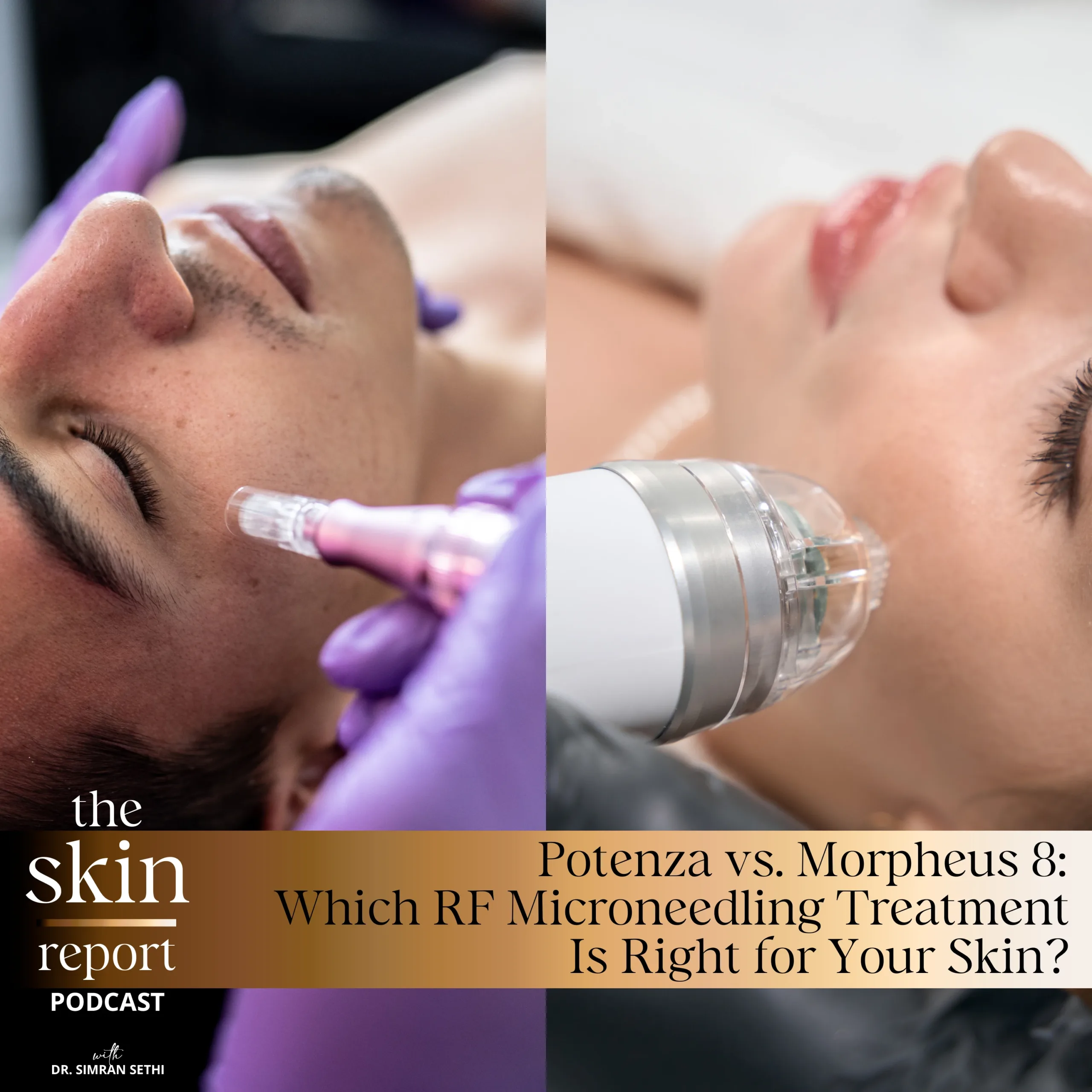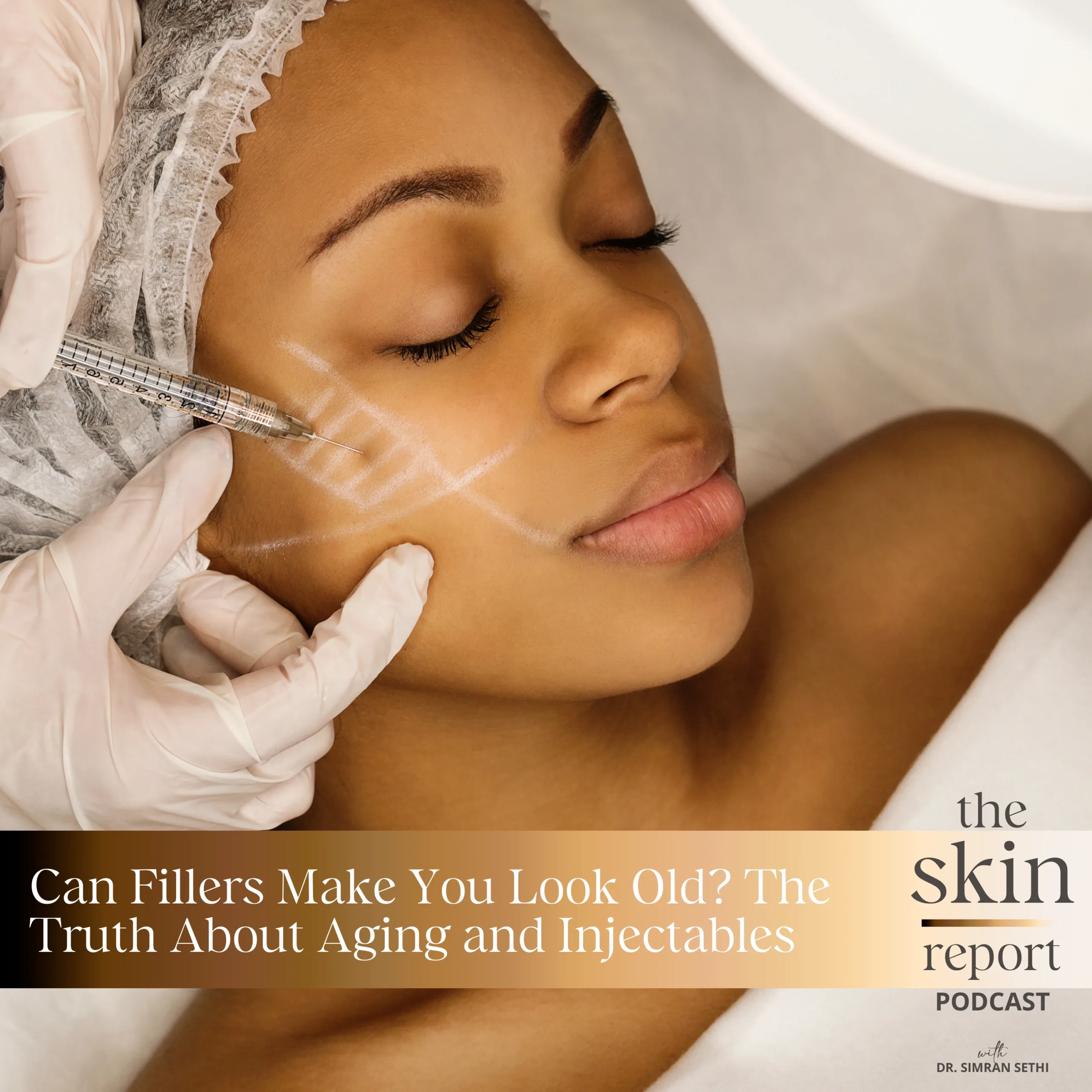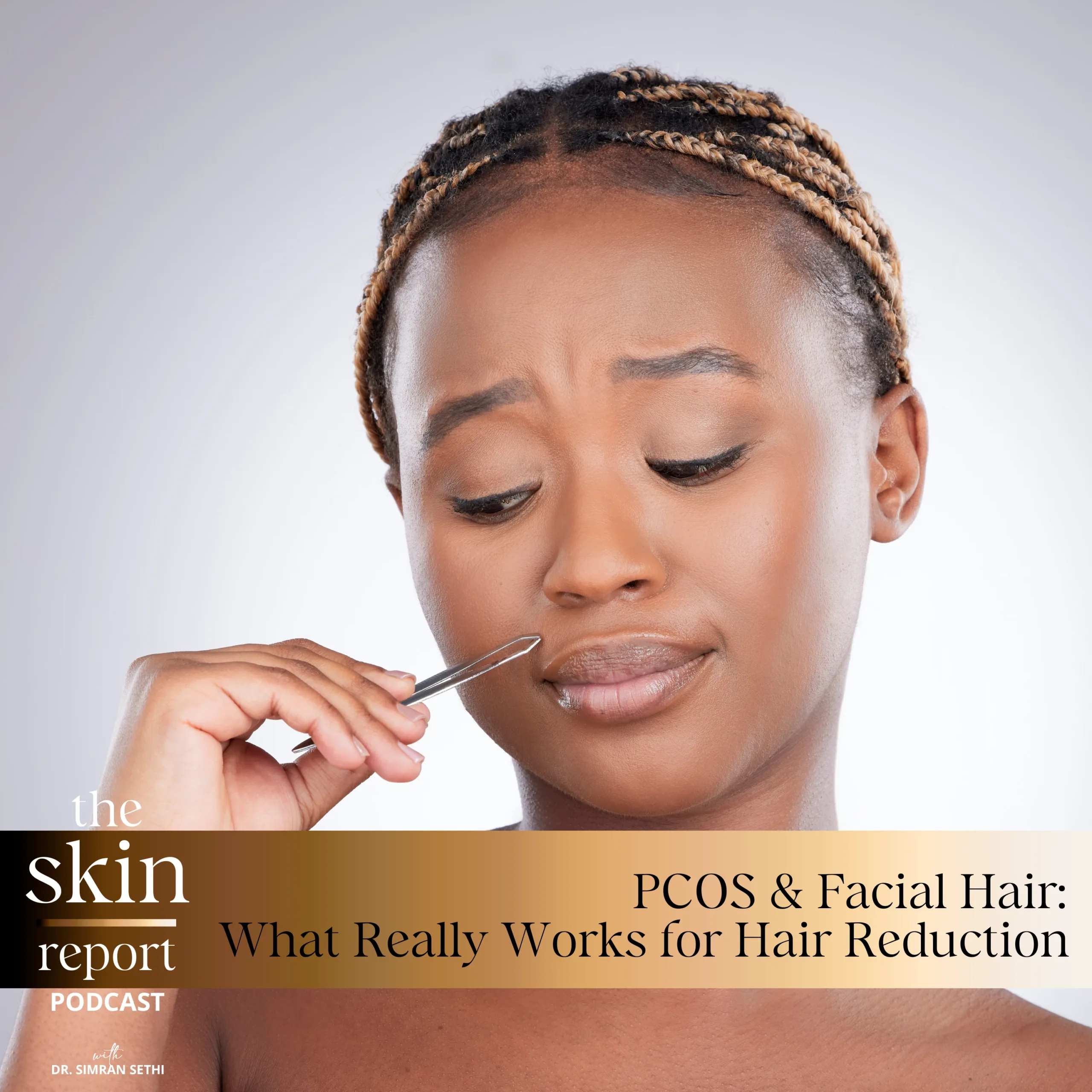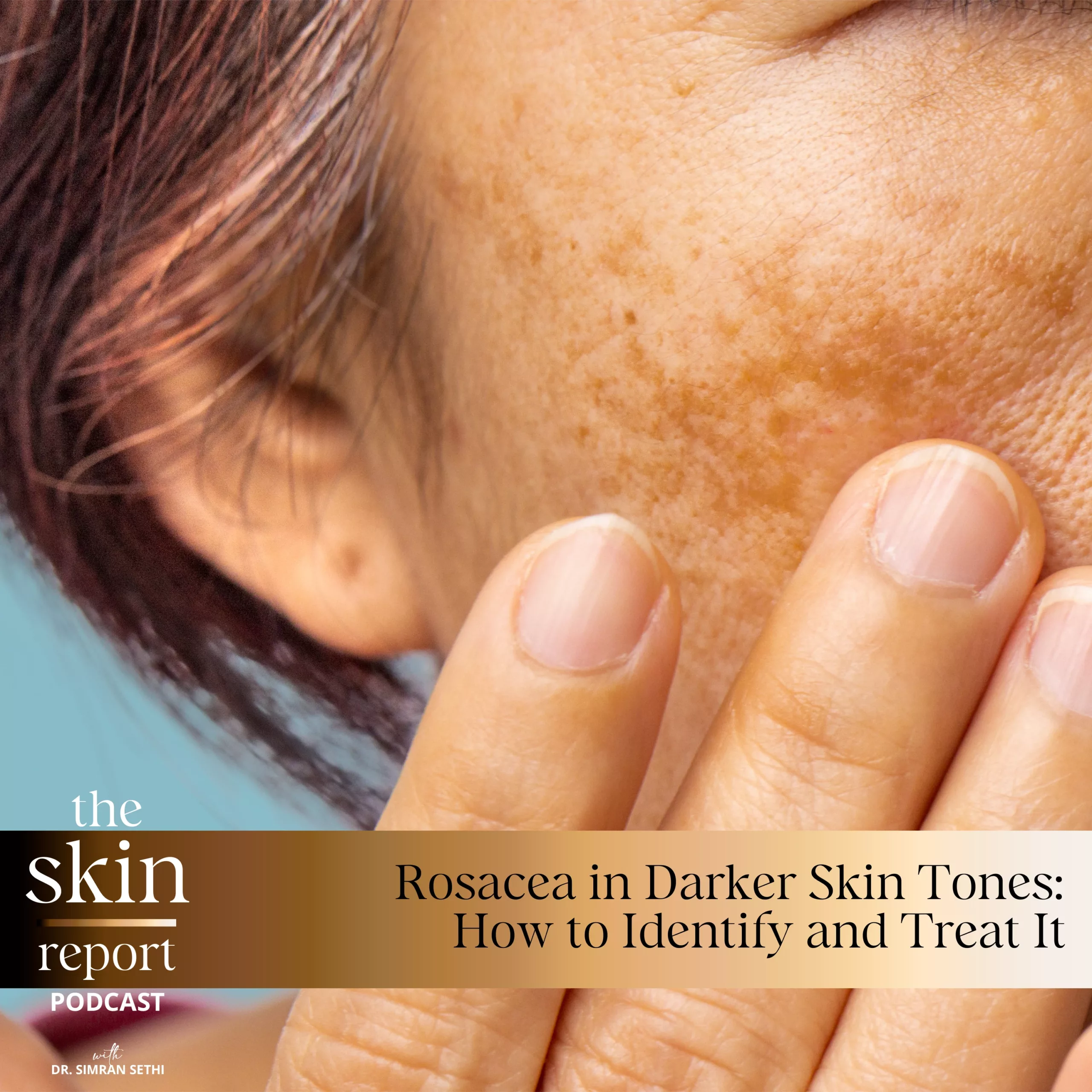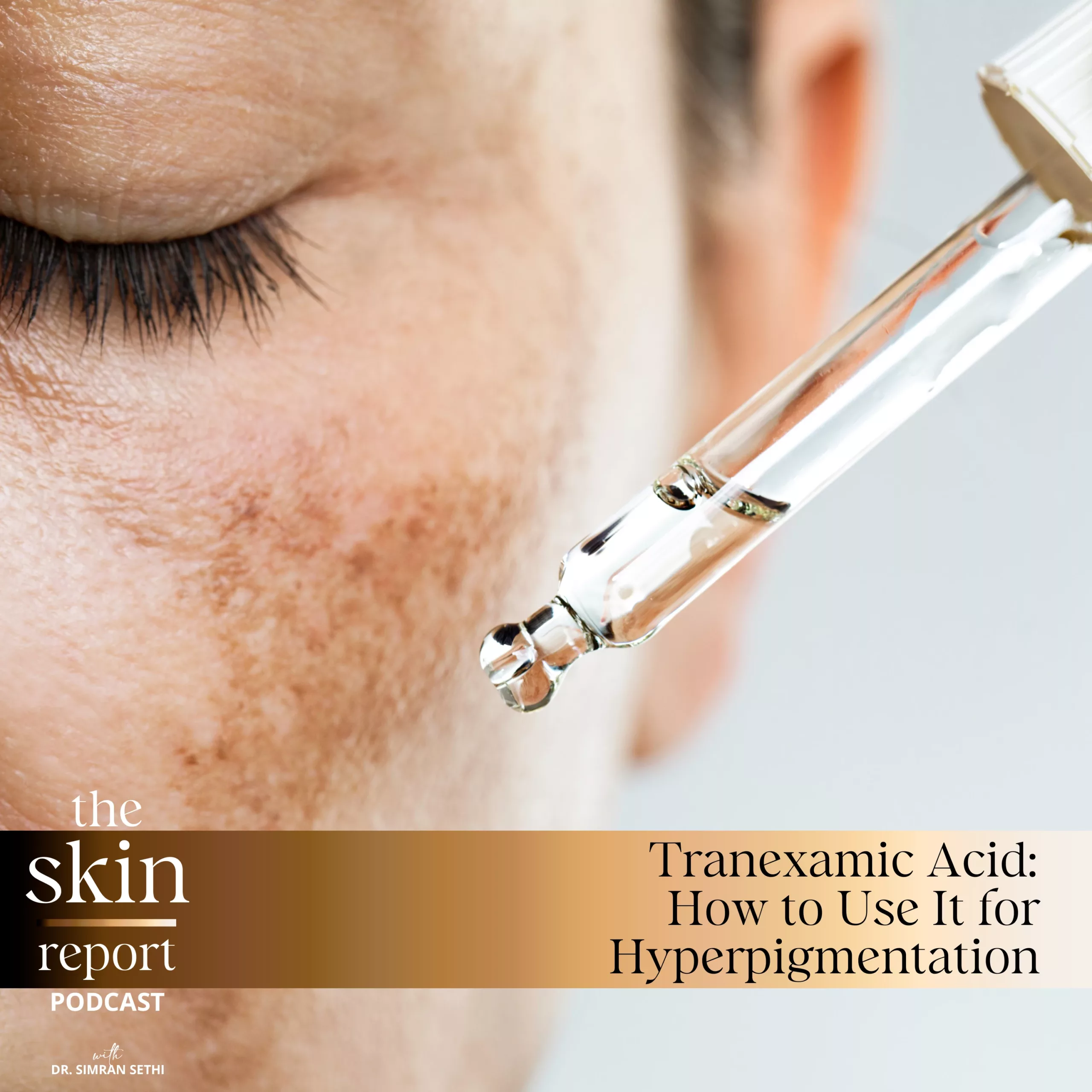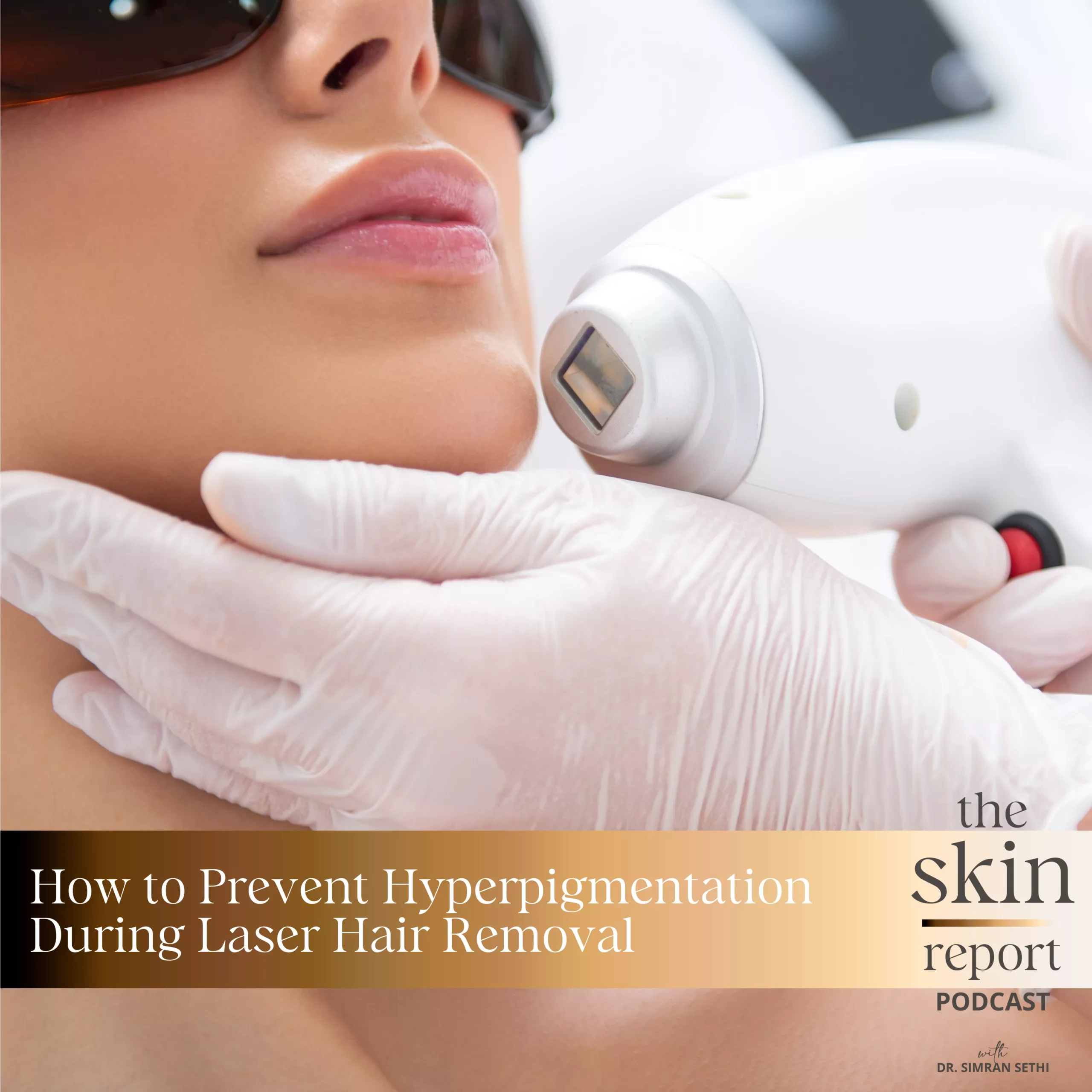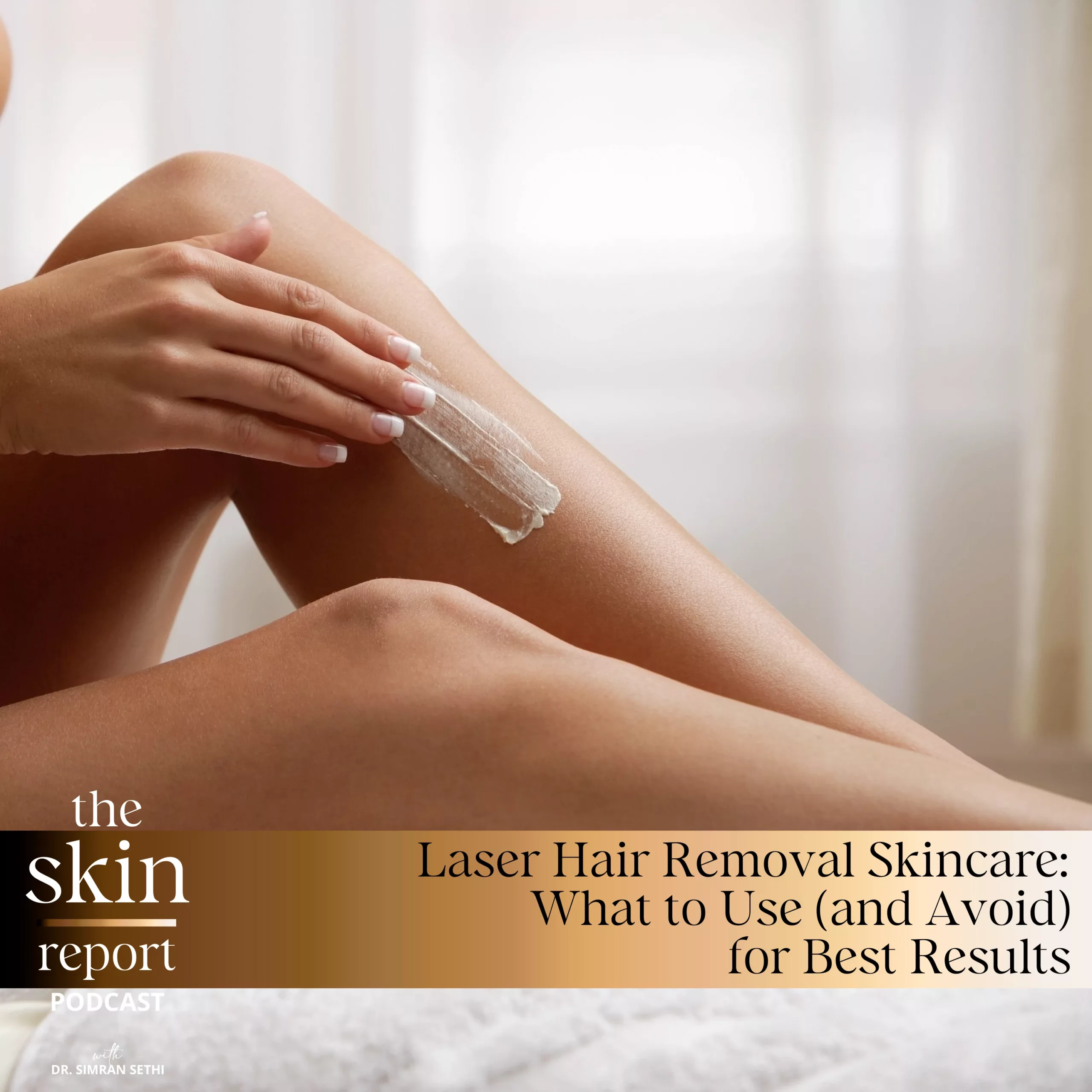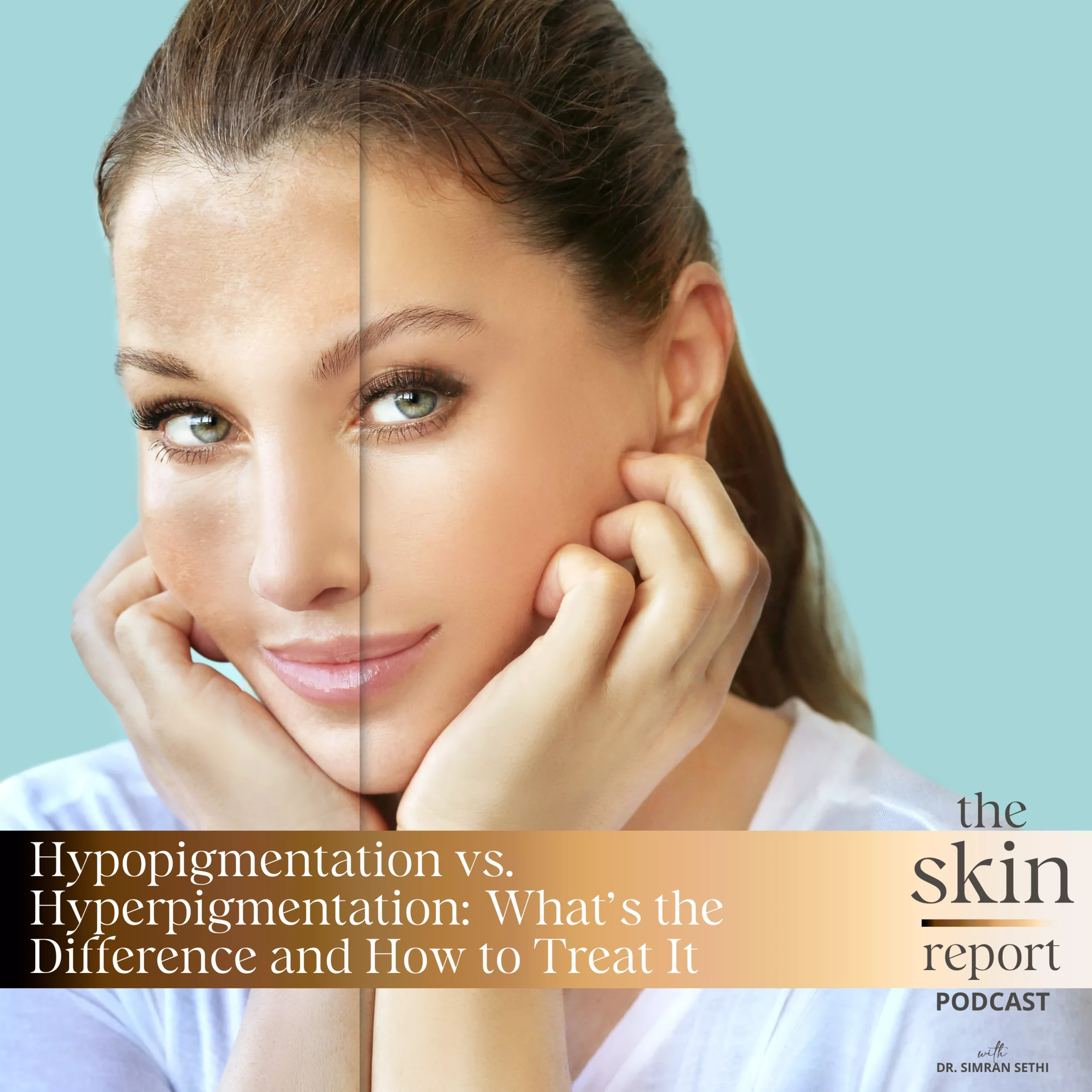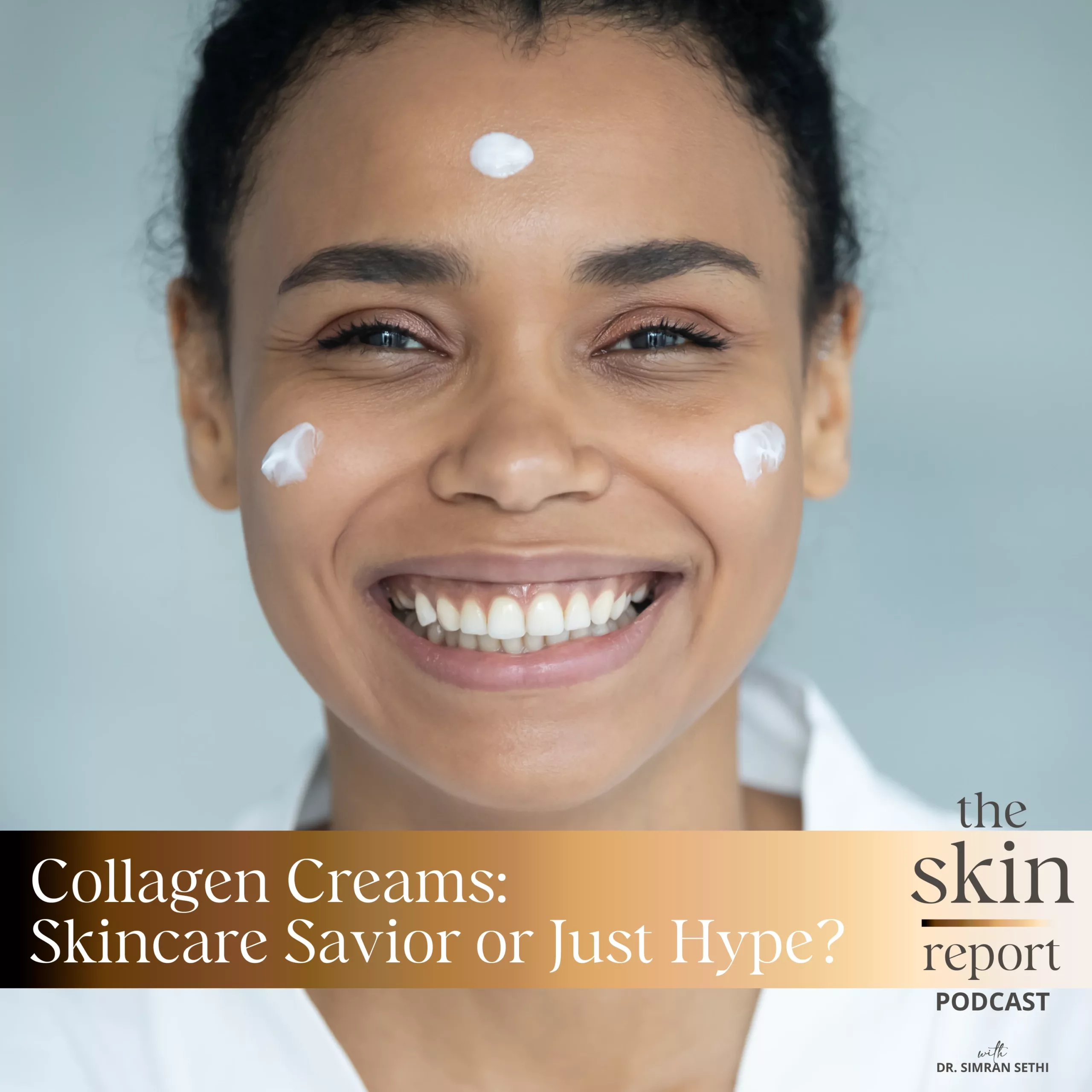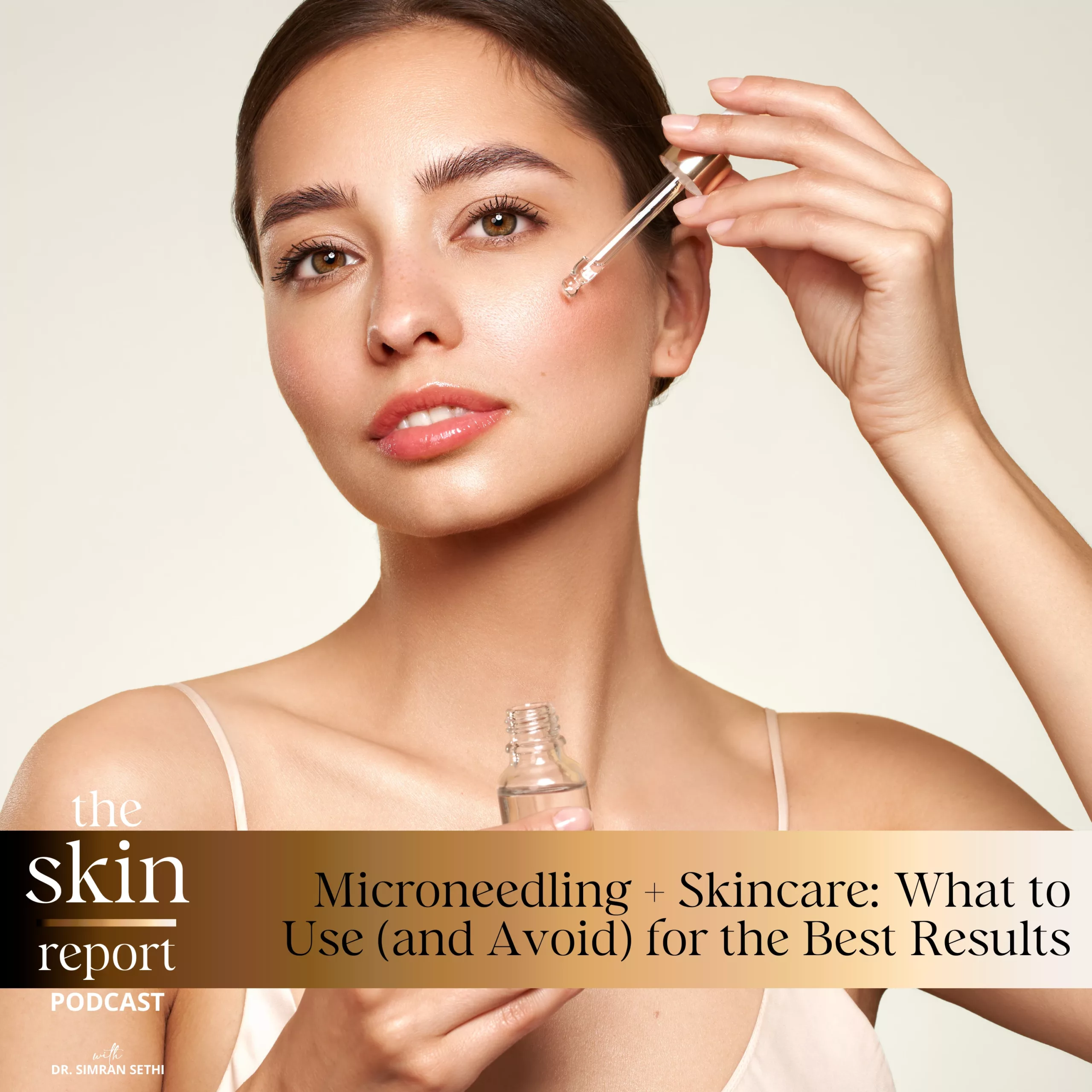Sunscreen Exposed:
Ingredients, Safety, and Environmental Impact
Welcome to another insightful episode of The Skin Report, where today’s focus is on exposing the truths behind sunscreen formulations . Join our hosts as they discuss the lesser-known facts about sunscreen ingredients , the significant differences between chemical and mineral sunscreens , and the hidden dangers that some popular sunscreen brands might pose to both your health and the environment . Through an engaging conversation filled with expert insights and personal anecdotes , this episode sheds light on what sunscreen companies might not want you to know. Whether you’re a seasoned skincare enthusiast or a concerned parent, this discussion on the safety and efficacy of sunscreens is crucial for anyone looking to make informed choices about their skin protection.
Exclusive Offer for the Skin Report Audience:
Use SKINREPORT20 in the shopping cart to receive 20% discount
LEARN MORE!
The Skin Report Podcast : Subscribe and Download!
Skin By Dr. Sethi – Blog
Skin By Dr. Sethi – Skincare
Skin By Dr. Sethi – Beauty Instagram
Dr. Sethi’s Medical Spa
Dr. Sethi’s Medical Spa – Instagram
Welcome to The Skin Report. Today, we are going to talk about an interesting topic, which is breaking down myths for skin of color, darker skin tones, people of Middle Eastern, Asian, South Asian, African descent. And again, if you enjoy this kind of content, enjoy learning about beauty, trends, skincare, skin treatments, please follow, like, and ask us any questions in the comments.
But I’m going to start our episode off today with our co-host, Shaheera. Hey, Shaheera.
Shaheera:
Hi.
Dr. Sethi:
Thank you for being here.
Shaheera:
Yeah, thank you.
Dr. Sethi:
Now, both of us being South Asian, there are so many… Well, every culture has their own, not just preferences, but just day-to-days, they’re very learned practices that are very, very innate and highly valued and respected. One of the things I do want to make sure that we do also state is that a lot of what we will discuss in this episode and video is… A lot of it I feel comes from a very personal level and then also from-
Shaheera:
And I think also some barriers-
Dr. Sethi:
Barriers.
Shaheera:
… that have not been removed. Let’s take it from a scientific standpoint and go, hey, these are the scientific reasons why you can remove these barriers and really enjoy the benefit of all the technology we have in skincare and medical aesthetics to really just elevate, take your skin to the next level, take how you feel to the next level. Because that’s what aesthetics is. Medical aesthetics is the field of making people feel better and more confident.
Dr. Sethi:
And a lot of the things that we discuss and a lot of the things that you talk about and educate your clients about and your team, a lot of this information can actually be used in professional settings too. So be very mindful of that.
If you are an esthetician, if you’re a medical provider in the aesthetics field, you may be also working with a lot of people from diverse backgrounds. So understanding their preferences around their skincare, why they prefer certain things. That’s a really, really important thing to get to know of your patient or client. So what this being skincare focused and the myths or the preconceived notions, those are what we want to talk about today.
What are people’s… Primarily women of color, we’ll say, we don’t want to generalize it, but also people of color, people with darker skin tones. What are the general things you’ve seen, firsthand seen, thousands of people at this point, what do they come to you and you’ve observed their limitations, self limitations or maybe culturally imposed skin care values. What do they need to learn that they can advance?
Shaheera:
I totally understand where they’re coming from because I grew up with a lot of these same myths, right? So the big one is that people think because they have a darker skin tone, and when they compare their aging to somebody of Caucasian descent, they go, “Hey, I didn’t start having… I don’t have wrinkles. I am looking pretty good and I don’t need to do anything about that. And so that’s great. I don’t want to be that person who has to go into a plastic surgeon’s office and a medical spa and spend all this money on skin care because my skin looks really good.” And yeah, that is true in most cases until women specifically hit their perimenopausal years.
It’s really interesting because until then they’re like, “I think my skin looks great. I don’t want to mess it up. I don’t want to do these things that’ll make it worse. What if it worsens?” And I don’t blame them when it comes to that because it is very true that even in our advanced… All this knowledge we have today about beauty and skin and skin treatments, very, very few studies have been done on skin of color.
So I get it, and you’ve only seen scary things. If your friend had a really nice procedure done on her skin and you’re just like, “Oh, she looks really good. What are you doing?” Or you may not even ask. But if she had something done that gave her more pigmentation and looks worse, you’re probably going to try and figure out what it was so you don’t do it accidentally. So there’s a lot of that. And I think that that’s what holds people back. But consistently in my practice, I hear this from women of color, “I was looking great, and then I feel like overnight my skin just got really saggy and these dark spots, they’re so much worse. I saw a picture of mine, I was just so surprised.”
Honestly, this was even more obvious since the pandemic. There were a lot of people I socialized with who have the same skin tone as me, and I didn’t see them for two years. And that’s not a long period of time if you think about skin aging, right? And some of them look really different. Not because of weight changes or the usual stuff, but really skin aging.
And that’s why I think people with darker skin tones, skin of color, you also need to be collagen banking. And again, we have a whole episode on it, and I think it’s a really good one. You also need to have a skincare routine that has some essential components, which we also have episodes on. And you also need to wear sunblock, which is the other myth.
Dr. Sethi:
Do you wear sunblock every day, Shaheera? Yeah, that’s right. I knew you don’t. And I practice in San Francisco Bay area where there are a lot of immigrants from India, Middle East, and they work primarily indoors, right in front of a computer screen and they don’t wear sunblock either because they’re thinking, “Well, why should I? I’m inside and I don’t burn. If I go out in the sun I don’t burn.”
But your sunblock, especially if it has blue light protection, will protect you from worsening any dark spots you had from acne when you were younger, and in darker skin tones, dark spots are a symptom of collagen breakdown and most prominent. So regardless of your skin tone, you have to wear a sunscreen every day. That’s a big myth.
Shaheera:
And also we have talked about in various conversations, not just the skincare myths, but the cultural norms of preferences in skincare and skincare ingredients. You’re a huge proponent of course, of medical grade.
But also there’s a balance to be struck if you prefer to use more holistic ingredients or DIY or just things that have more of a cultural resonance for you, I feel like introducing this really deep dermal skin renewal medical grade ingredients is really helpful to, again, collagen bank, renew your skin, prevent a lot of those.
How do you explain that importance to somebody who’s like, “Well, hey, I actually really love what I use and this is what I’m just used to.” They seem to be set in their ways.
Dr. Sethi:
And that’s true. There are a lot of people who like using natural products, and I am not saying that’s bad. Again, I admit I’m coming from a very different standpoint. What I do is all clinical grade. So I am biased, that I will say because of that. But there’s a scientific reason for that. The delivery, if you go into your kitchen and use that, use your ingredients as your skin care, they’re not designed to go into the dermis of your skin where all the action happens. So you’re not really doing anything. That’s how I say it.
But then the other thing is I tell them, “Well, you know what? There’s also a lot more potential in your skin. And if you want to basically unleash that potential, take your skin to the next step naturally, meaning let’s take the natural skin renewal cycle and just put it into an overdrive it. Let’s use your natural assets.” Then I think people are like, “Oh, okay. Well, yes.” We’re not talking about such a drastic change in your appearance. We’re talking about you looking your best self. And you can achieve that with skincare. As long as there’s this, you’re approaching it from a scientific standpoint. And I think that resonates with people.
Shaheera:
And I think no matter what culture you are, but from that perspective of like, “Hey, my skin just like… I don’t need it. I have a really great amount of melanin protecting my skin. My skin doesn’t age as much. It probably won’t.”
Dr. Sethi:
Yeah, that’s right. That’s right. That my skin doesn’t age. That’s the problem. That’s the biggest myth. That’s the basis of it. There are hormones in all of us, no matter what skin tone we have telling our skin to continue to renew. And that’s why at that perimenopausal stage, especially in women, and men go through something called andropause, they don’t see the changes as drastically, but they will suddenly see changes. So let’s be proactive. Let’s adopt all the great information and research and products and treatments that are available today, and really just look at all the potential. So when it comes to a summary of what we talked today, the myths really boil down to, “I don’t need to,” which you do.
Shaheera:
Because need to be preventive. Because you have a built-in barrier, which has deeper melanin
Dr. Sethi:
Yes, you have a built-in anti-ager, all that nice melanin. And, “I’m scared that it won’t work or it’ll worsen my skin.” And then the very specific, “I don’t need to use sunblock.”
Shaheera:
Aging is not just wrinkles and fine lines, and it’s not just sagging skin. It can be dry skin, it can be really low skin renewal.
Dr. Sethi:
Absolutely. [inaudible 00:10:55]
Shaheera:
You can age your skin even if you’re younger, just from not using [inaudible 00:10:59]
Dr. Sethi:
Yes, and dark spots.
Shaheera:
Yep. That’s a big one. The skin not looking clear.
Dr. Sethi:
Yep.
Shaheera:
Yeah. And I would really encourage anybody who’s listening or watching, just share the things that really worked for you. If you have any questions
Dr. Sethi:
Or even your hesitation.
Shaheera:
Yeah, your hesitations, your fears, or something that you’ve noticed someone… Fear-induced, an associated skincare fear that you have. Feel free to leave us. Any comments, questions, anything else?
Dr. Sethi:
No, that’s it. And thank you everyone for listening today. And again, if you enjoy this kind of content, please like, subscribe and interact with us in comments.


